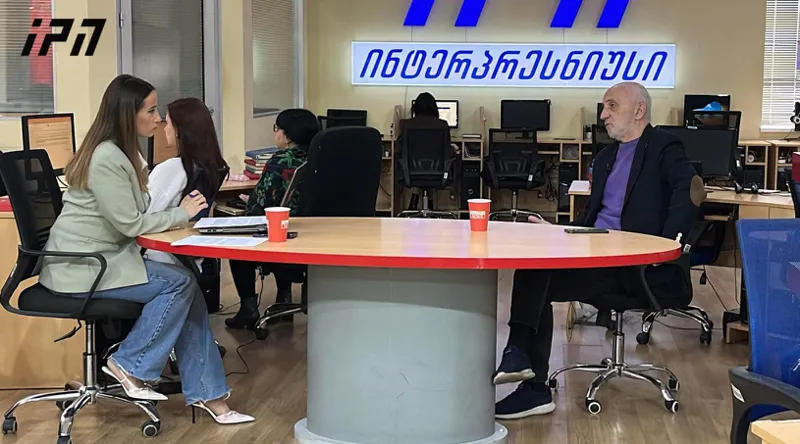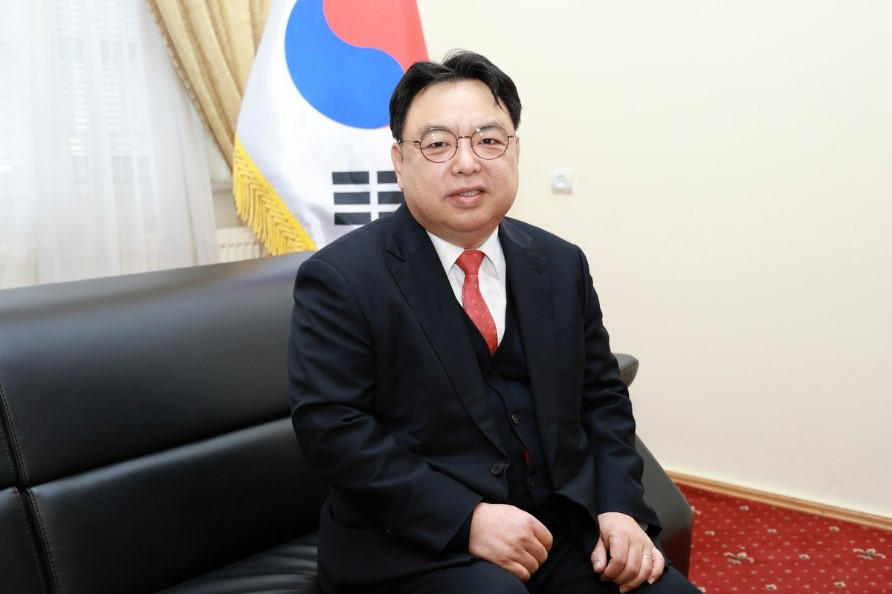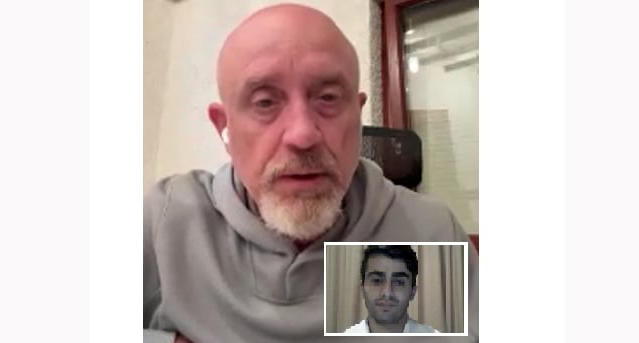Gia Khukhashvili: Americans are talking to all the countries around the Black Sea except Georgia - In Riyadh, the Russians probably told the Americans: 'We have the Georgians in our pocket, and we’ll handle it.' The 'Dream' party has dragged us into this misfortune

Imagine, in Riyadh, the Russians probably told the Americans, “We have the Georgians in our pocket, and we’ll handle it” – Americans are talking to everyone except Georgia. This government has dragged us into this misfortune, - said political scientist Gia Khukhashvili in a TV program "Day's Newsroom" on Palitra News, commenting on the fact that after the agreement between Ukraine and Russia on the cessation of hostilities in the Black Sea, the U.S. Secretary of State spoke with the governments of Turkey, Armenia, and the Baltic countries, but not with the Georgian government.
According to him, today, Georgia finds itself in a situation where Russia is handling the Georgian issue in major negotiations.
"Imagine what was happening in Riyadh when the Americans and Russians were discussing this. The Russians told them, 'Talk to the parties.' The Americans said, 'I’ll talk to the Armenians and Turks, but what should we do with the Georgians?' The Russians said, 'We have the Georgians in our pocket. We’ll handle the Georgians.' This is the situation our country is in: the Americans are talking to everyone except Georgia, and Russia is handling the Georgian issue in these big negotiations. This government has dragged us into this misfortune," said Khukhashvili.
Additionally, Khukhashvili discussed the temporary investigative commission on the activities of the "National Movement" government and called it "a kind of political show." He stated that, since "Georgian Dream" is experiencing moral degradation, it is trying to regain moral superiority by demonizing its opponents.
"This is a kind of political show, with its own motivations. There is political logic behind this. The political battle is going on on two fronts. One is the demonstration of power, and here, on the opposition side, great energy cannot be accumulated, but on the power front, the government is winning. However, the government has a problem with moral degradation. The overall argument of the opposition and critical society is that the government has lost its moral base in communication with the public. Therefore, the government is trying to regain the moral advantage that, as they believe, they had for years.
How should they regain it? They don’t have the chance to say they are the good guys, so the only way to regain moral superiority is by demonizing their opponents. That is, saying, 'Okay, I may be the bad guy, but they are worse,' and they thought the best way to do this would be through this commission process. Why weren’t the members of the 'National Movement' invited and why did they indirectly touch on Khazaradze and Japaridze, who were not part of the system? Moreover, there was a problem with Mikheil Saakashvili’s government. It was a normal business that, for self-preservation, was cooperating with the government in some way, just like any other business. I can tell you about businesses that today are tightly embraced by the government and cooperated much more intensively with the previous government, like the Khakhadze family. The government’s goal is not to punish businessmen who cooperated with the previous government, but to punish the disobedient businessmen who, in their view, cooperated with the previous government but are not cooperating now. The 'Magnate case' has many participants, including, unlike Khazaradze and Japaridze, direct criminals: prosecutors, judges. The financial police hand of the Magnate’s owner was shaken, didn’t Khazaradze take their property? Judges who participated in this case, weren’t they appointed as lifetime judges by the government? Or aren’t those prosecutors still working in the prosecutor’s office? That’s why this is all a farce and political reckoning," said Khukhashvili.
Regarding whether the opposition’s participation in the commission sessions is right or if they should decline, Khukhashvili said, "This is of no fundamental importance; the key is to have calculated next steps."
According to him, "everyone should act in agreement, and if one does not go, no one should go, and the commission should be sterilized." As Khukhashvili says, "This commission should be made 'sane.'"
When asked how the situation could develop, Khukhashvili says that this process "is a cat-and-mouse game and not a predictable issue, it’s like reading coffee grounds."
"Both tactics are acceptable, you may go to the meeting or not. But you should have calculated what happens after that. Politics is not a one-variable combination, you can’t emotionally announce that you didn’t go, then results follow, and in response to those results, you weren’t prepared for the next step. It shouldn’t happen like that. Unfortunately, the political process in Georgia is unprofessional. This is not called 'Shashk,' it’s Chapaev - when figures hit their heels and either hit them or don’t," said Khukhashvili.
Additionally, in response to critical assessments of the opposition’s lack of activity on the political field, Khukhashvili says, "The opposition is in a serious intellectual crisis and doesn’t know what to say."
"Our opposition today is like a person who says, 'I’m a really great driver, I can do great things with the car, but instead of sitting in the driver’s seat, they are in the back seat waiting for the car to get from point A to point B without the driver, and then they will get out of the back seat and say, 'See, I’m a great driver?'" concluded Khukhashvili.

